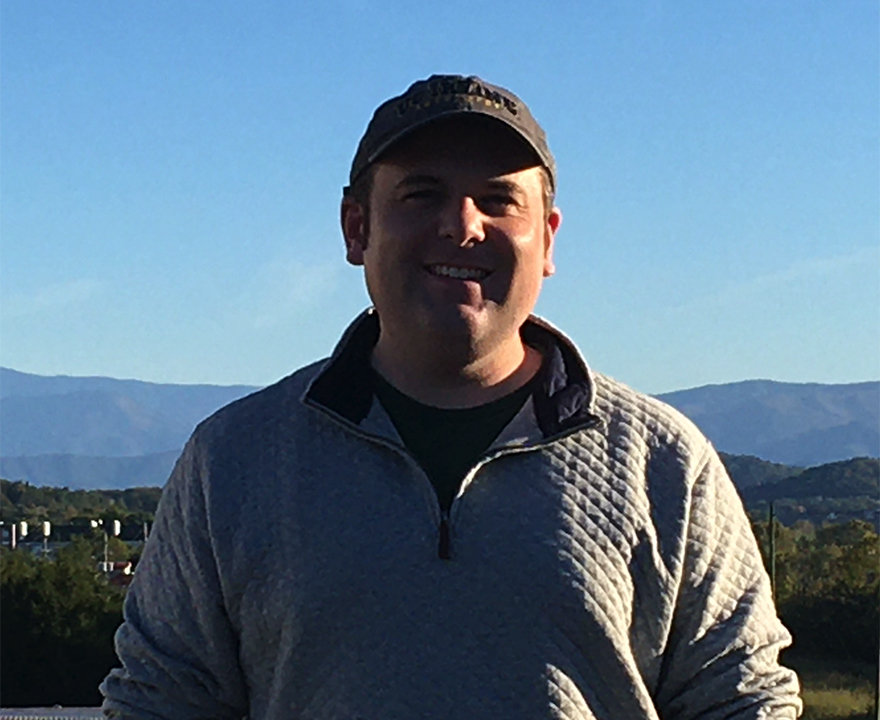Soc sci shout out: Paul Love, political science Ph.D. ’22

Soc sci shout out: Paul Love, political science Ph.D. ’22
- May 27, 2022
- Class of 2022 grad credits the interdisciplinary approach of UCI social sciences for his academic success and planned career path
-----
Paul Max Love, UCI political science Ph.D. ’22, has been interested in the field of international relations for as long as he can remember. The first five years of his life - spent living abroad as a child in Venezuela - instilled an early interest in other cultures, which eventually drew him to political science. But it was his undergraduate study abroad experience in Southeastern Europe that was the most powerful indicator that he should pursue a career in international relations.
“From a candid discussion with a shopkeeper in Sarajevo about the 1990s wars, I saw firsthand how the international community had been crucial in establishing peace in Bosnia and Herzegovina,” he says. “My conversation revealed that organizations for which I had done field research, such as the Organization for the Security and Co-operation in Europe and the Office of the High Representative in Bosnia and Herzegovina, could affect positive societal changes.”
He earned dual degrees in political science and psychology at the University of North Carolina at Chapel Hill where he also developed an interest in research.
“My undergraduate psychology research in social cognition helped shape my understanding of organizational relations by demonstrating how endogenous institutional factors strongly affect decision-making,” he says. He went to earn a Master of International Studies at North Carolina State University where he focused his research on the relationships within and between the bureaucracies that constitute international organizations. The work motivated him to explore how international organizations can more efficiently and democratically govern, as their policymaking functions can sometimes exceed or contradict member states' preferences.
He also interned at the United States Mission to the EU where he became familiar with the governance of European crisis management.
“Like many other policy areas in the EU, crisis management is composed of constellations of intergovernmental organizations (IGOs) and non-state actors such as nongovernmental organizations (NGOs) interacting to achieve goals based on shared principles and understandings among policymakers,” he says. “My master's capstone project addressed the challenges of implementing EU crisis management, considering how institutional design, history, and organizational culture collectively limit and shape possible outcomes and how problems are understood.”
His master’s advisor, a UCI alumnus, opened Love’s eyes to a career in academia that would allow him to fully explore the implications of transnational governance.
“UCI had the resources and theoretical openness that could help me pursue my research aims,” he says. “I was attracted to UCI's School of Social Science to continue my work on European security and defense because the boundaries between disciplines are very porous compared to other institutions. This multidisciplinarity of the social sciences at UCI was also complemented with a strong emphasis on methodological pluralism, conducive to my research into the cultural dimensions of European security and defense.”
Of all the tenets involved in his area of expertise, Love is most interested in linking international relations theory to concrete applications in policymaking.
“In this endeavor, I aim to make my work accessible to academic and non-academic audiences,” he says. “I hope my research helps policymakers better understand the nature of the complex interconnectedness of security and defense policy within a global context. With greater access to information, I believe policymakers can better serve the publics they represent, improving the efficiency and democratic legitimacy of transnational governance.”
Love is grateful for the mentorship and expertise provided by his advisor, Etel Solingen, Distinguished Professor of political science and Thomas T. and Elizabeth C. Tierney Chair in Peace Studies.
“She has always supported my curiosity in my research and helped me ensure the theoretical rigor of my work,” he says. “At the same time, she has guided me to make sure my work is engaging and accessible to academic and non-academic policy audiences. Moreover, she helped keep me on track toward my academic goals as I faced trying personal challenges during my time at UCI.”
As he gets ready to leave the UCI campus in June and go on the job market, Love is also thankful for the preparation UCI has provided him along his path to be a professor.
“UCI has helped prepare me for a career path in academia through curricular and co-curricular activities,” he says. “My department's sponsorship of my participation in the Consortium on Qualitative Research Methods (CQMR) summer institute helped transform my research by incorporating computer-assisted-text analysis into strategic cultural studies. The Graduate & Postdoctoral Resource Center has helped me develop professionally through the Mentoring Excellence program and the Preparing for a Faculty Career Certificate. The many teaching opportunities through teaching assistantships combined with Division of Teaching Excellence and Innovation (DTEI) seminars helped me hone my teaching skills. I feel excited and ready for my next chapter.”
-----
Would you like to get more involved with the social sciences? Email us at communications@socsci.uci.edu to connect.
Share on:
Related News Items
- Careet RightReady for takeoff
- Careet RightSoc sci shout out: Paul Love, political science Ph.D. '22
- Careet RightAttending the National Conference for Black Political Scientists
- Careet RightUC Irvine political science faculty statement on the events of Jan. 6, 2021
- Careet RightHundreds of political scientists call for removing Trump


